
Brexit year could be key for Bern-Brussels relations
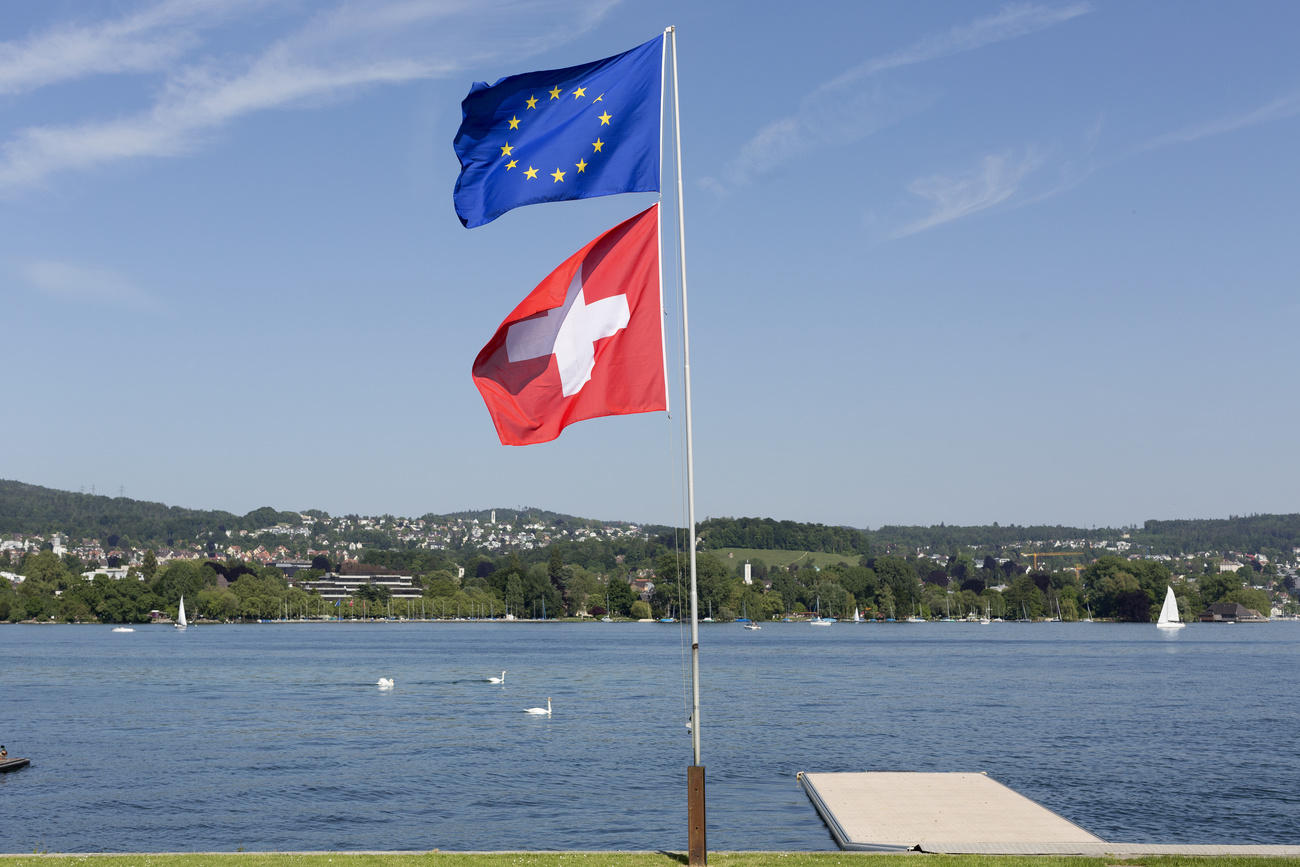
A small country in the middle of Europe has long resisted joining the European Union. Switzerland prefers bilateral agreements, but the EU is pressuring it to enter an overarching framework agreement. The European law expert Christa Tobler sheds light on the situation and how it compares to Britain and Brexit.

The institutional framework agreement, which covers five key areas including the free movement of people, is aimed at simplifying future ties with the EU. Negotiations have been going on since 2014. Currently Switzerland has around 120 separate bilateral accords with the EU.
+ What is this EU framework deal?
swissinfo.ch: Will 2020 be a key year for Switzerland in terms of its relations with the EU?
Christa Tobler: It is likely to be a year in which important issues are decided. This certainly includes May’s vote on the [immigration] limitation initiative, which aims to stop Switzerland’s free movement of people [with the EU].
+ Read more about the initiative’s proposals here
The European Commission will also present a report in spring on its adequacy decisionExternal link recognising Swiss data protection measures; Switzerland is currently updating its data protection law. We’ll also have to wait and see what will happen in terms of the institutional framework agreement, which should establish new rules for parts of the current and future bilateral agreements.
swissinfo.ch: Where are we now in terms of relations, on a scale of 1 to 10 (from total discord to complete harmony)?
C.T.: I would reckon at about 7, that means good, but could be better. We shouldn’t make the mistake of widening the partial disagreements on the framework agreement to Swiss-EU relations as a whole. In general, relations are still good.
swissinfo.ch: What’s next?
C.T.: A lot will depend on the outcome of the vote on the immigration limitation initiative.
swissinfo.ch: How?
C.T.: The immigration limitation initiative is putting essential elements of bilateral law at stake. If it’s voted through, then that’s the end of the current bilateral path. If it’s rejected, attention will be on continuing work on this path. In terms of domestic policy, there will be much attention paid to how clear the result is for one side or the other.
swissinfo.ch: What happens if Switzerland says no to the framework agreement?
C.T.: According to the EU, it would no longer be possible to conclude new market access agreements, such as the one planned for the electricity [market]. The EU has also said that it could refuse to adapt existing agreements to new EU legislation, as is done at present. Important agreements would therefore lose value and the bilateral path would as a whole no longer work as well as it does now. This would, for example, be felt by companies which sell their products abroad and would in turn put Swiss jobs at risk.
swissinfo.ch: The EU says that renegotiation is not an option. Do you think this is sacrosanct or could the EU be prepared to make concessions on certain points, like with Britain?
C.T.: In the UK’s case, an important part of the renegotiations consisted of going back to the EU-favoured model on the internal Irish border – which was not really a concession from the EU. Considering the framework agreement with Switzerland, I think the EU would be prepared to add in certain clarifications but not to modify the agreement’s text. The EU believes it has already made concessions to the Swiss on important points.
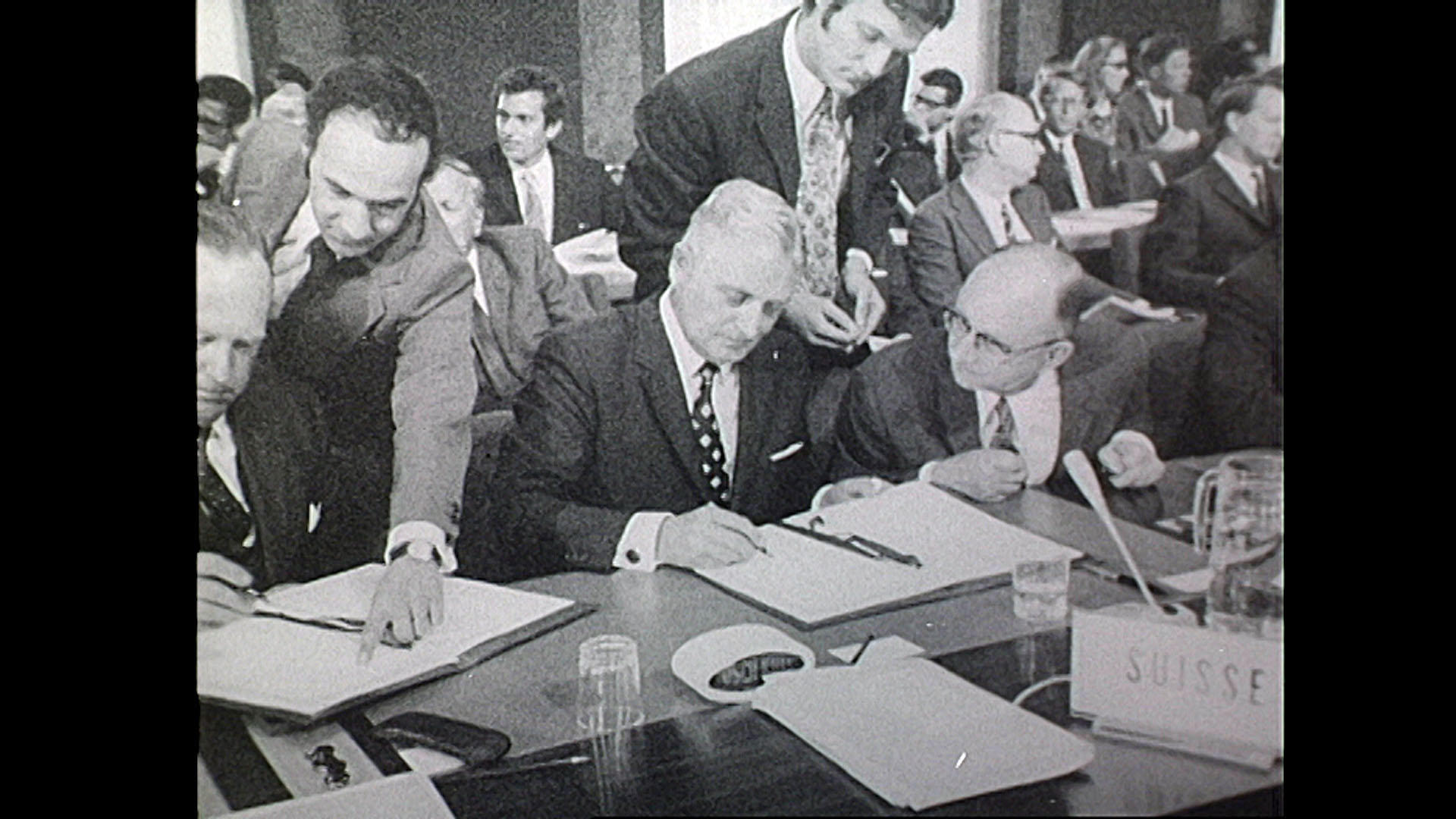
More
Swiss-EU relations: the key milestones
swissinfo.ch: How realistic is it that Switzerland might actually join the EU?
C.T.: At the moment it’s certainly unrealistic. There’s no majority in favour of this and EU membership is not one of the government’s goals.
swissinfo.ch: What is the difference now between Switzerland and other, EU-member, countries?
C.T.: Switzerland participates in a central element of the EU – the single market – but partly using other rules of play. The country also works with the EU in other areas, but it is not a member and therefore does not participate in internal decisions. Many aspects of the EU do not apply to Switzerland at all, such as agreements made with other countries, or the euro, its common currency. So in contrast to EU members, Switzerland is more like an associated state.
swissinfo.ch: How would Switzerland be different from EU members after signing the framework agreement?
C.T.: As previously outlined. The new rules of play won’t really make a difference in terms of the other EU members, but will make more of a difference in terms of the other European Free Trade Association (EFTA) countries (Iceland, Norway and Liechtenstein) and in the European Economic Area (EEA). The framework agreement will increase Switzerland’s similarity to these countries.
+ More on Switzerland and the EEA here
swissinfo.ch: Switzerland is often considered to be a cherry-picker: it wants the advantages of being in the EU but without losing its sovereignty. What is your view on this strategy?
C.T.: I can understand that a country wants the best for itself but at the lowest possible cost. Bilateral law will never give Switzerland the advantages of EU membership. The country participates in some areas of the EU. The challenge is in recognising that this also has a certain price. You can’t be part of a multilateral project but keep your total independence.
swissinfo.ch: What would happen to direct democracy if Switzerland became a member of the EU?

More
No-deal Brexit: Switzerland and UK sign social security agreement
C.T.: From a formal point of view, nothing: people could still vote and launch initiatives and referendums. But EU law does have precedence over members’ national law. You are not allowed to apply national laws that go against European laws; they must be modified. That means that the instruments of direct democracy would, of course, in actual fact be affected. This is basically already the case for provisions of international law. EU law is however much stricter in its application and also affects many areas.
swissinfo.ch: Will Britain be in a more precarious position than Switzerland after a hard Brexit?
C.T.: In my opinion, yes. Switzerland has established formal relations with its neighbours, but the UK has to start from scratch in this area.
swissinfo.ch: Could Switzerland become a special friend to Britain, given that it already – unlike the EU – established bilateral agreements with Britain early after the Brexit vote?
C.T.: This is of course good for Switzerland and the UK. But in terms of EU-UK relations, many more issues will have to be sorted out – above all the UK’s withdrawal, and this is already complicated enough…
The interview was conducted in writing
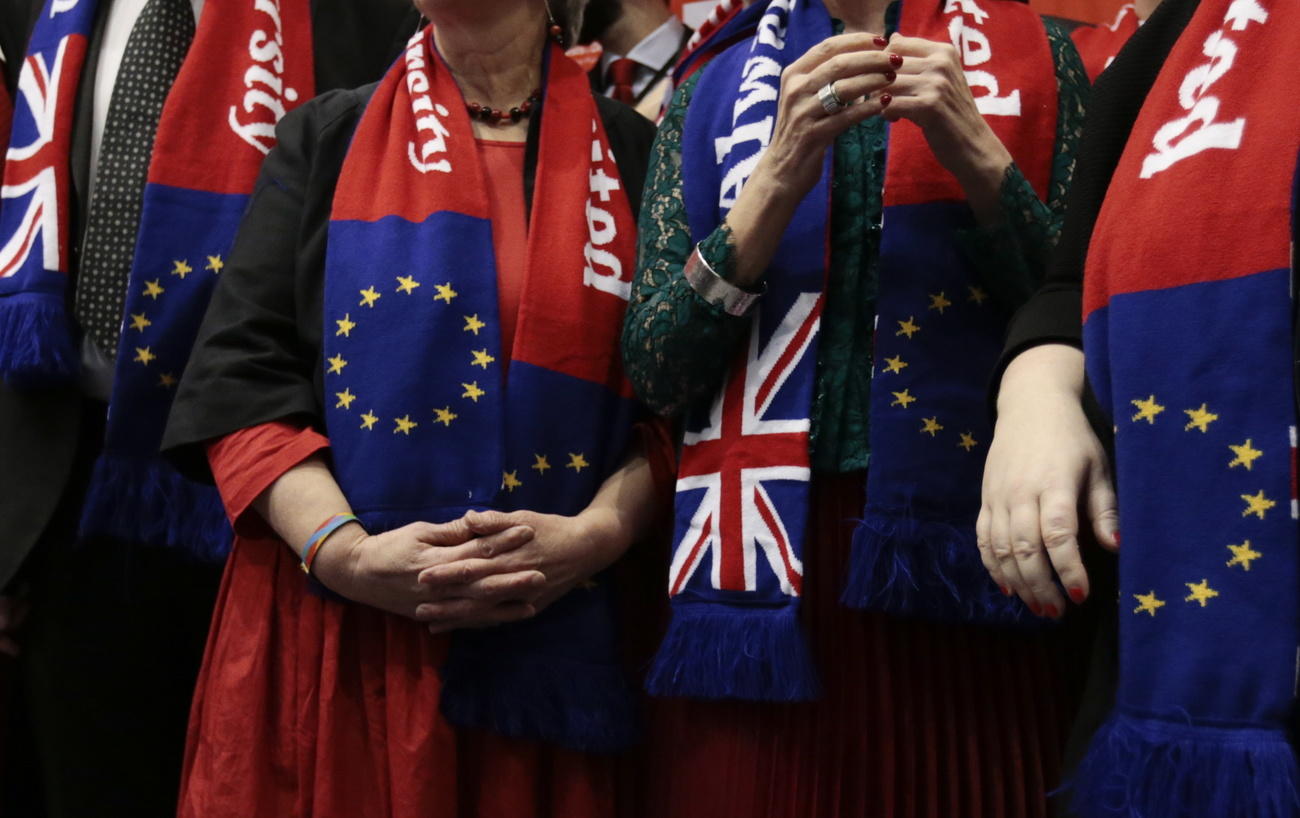
More
Brexit: a day to celebrate or commiserate?
Translated from German by Isobel Leybold-Johnson

In compliance with the JTI standards
More: SWI swissinfo.ch certified by the Journalism Trust Initiative



































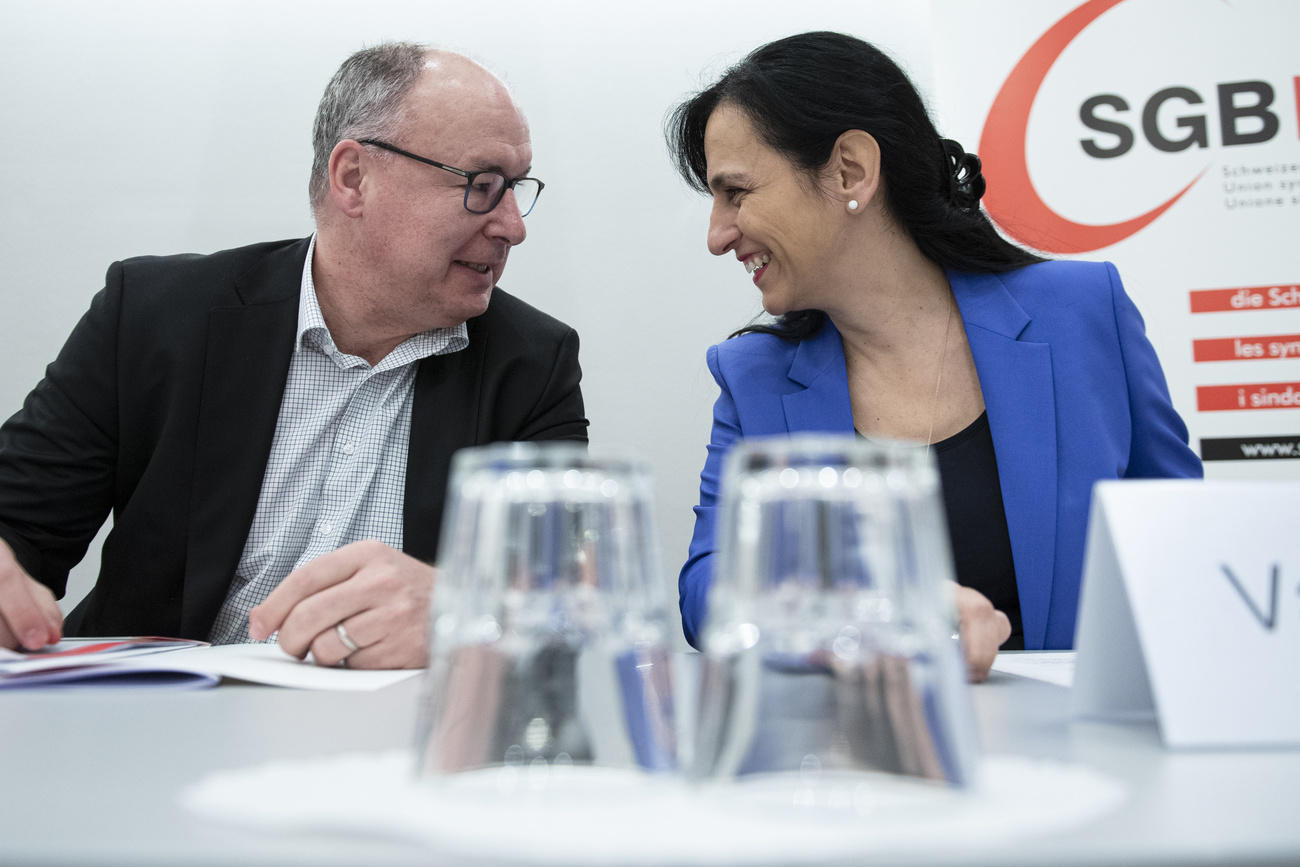
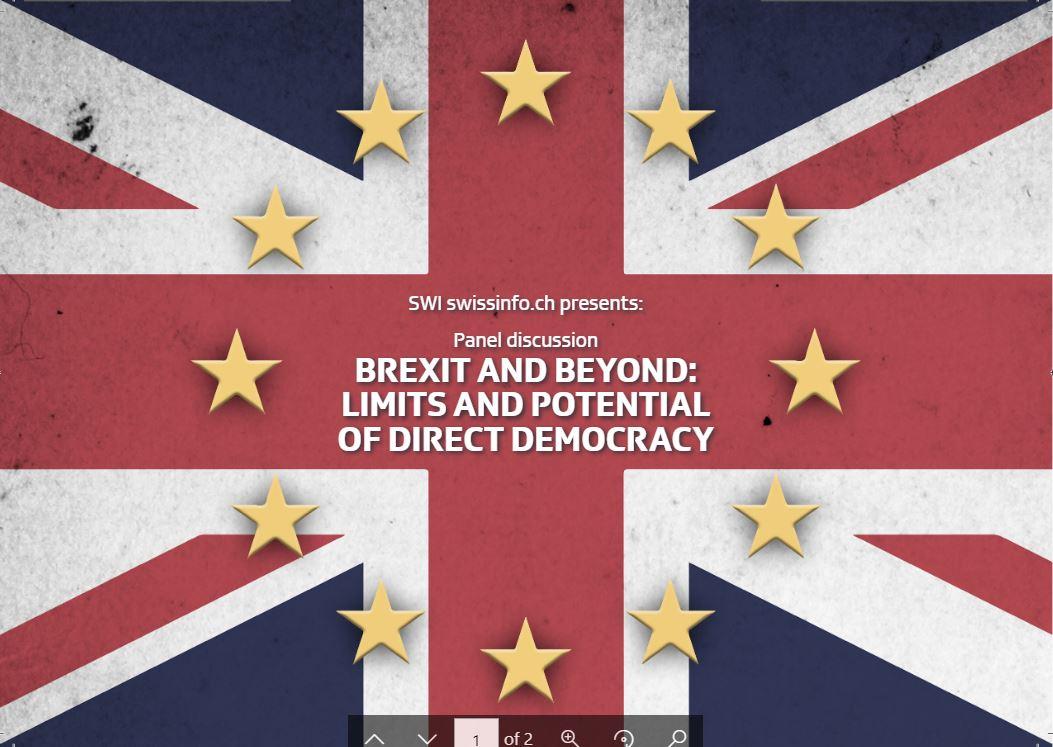


You can find an overview of ongoing debates with our journalists here . Please join us!
If you want to start a conversation about a topic raised in this article or want to report factual errors, email us at english@swissinfo.ch.